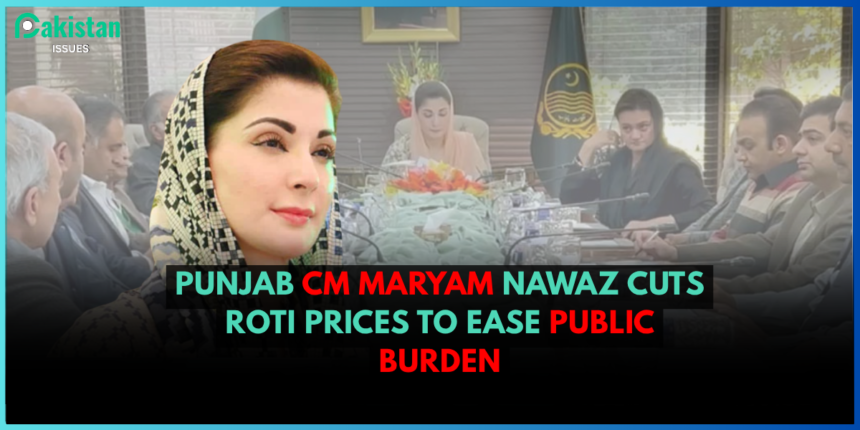LAHORE – Chief Minister Maryam Nawaz Sharif has issued immediate orders for the reduction of roti prices across Punjab, taking a decisive step to provide financial relief to the province’s struggling population. The directive, given during a meeting with district administration officials, sets the price of a single roti at Rs16—a move expected to impact daily food expenses for millions.
Instructing strict compliance, the Chief Minister warned that violators will face penalties, with Deputy Commissioners held directly responsible for enforcement. The decision comes at a time when inflation continues to squeeze working-class households, and staple items like roti have become increasingly unaffordable.
Maryam Nawaz was quoted saying, “People shouldn’t have to choose between hunger and dignity. This government cannot stand by while basic necessities go out of reach.”
Roti, a daily necessity in most Pakistani homes, had recently seen price hikes in urban and rural areas alike. From Lahore to Multan, many tandoors were selling a single piece for as much as Rs20–22. For daily wage earners and large families, that extra cost quickly added up.
The CM’s order triggered immediate responses from administrative officials. Monitoring teams have already been dispatched to various towns and cities to ensure the directive is being followed. In some areas, prices were adjusted overnight.
Public reaction has largely been positive. “It might sound like a small issue to some, but when you’re feeding five or six people twice a day, a Rs5 drop in price matters a lot,” said Yousaf Ali, a mechanic in Sialkot.
However, some tandoor owners expressed reservations. Rising flour and gas prices have made operations difficult. “We’re not against price control, but the government must also consider our cost of production,” said a bakery owner in Gujranwala.
In response, the Punjab government is reportedly reviewing a subsidy framework that could support tandoor owners by stabilizing input costs. Talks with flour mill owners are also underway to secure steady supply at controlled rates.
Maryam Nawaz’s decision has also been viewed through a political lens, with analysts calling it a strategic move to show her administration’s pro-people stance early in its tenure. After launching reforms in education and healthcare, the roti price cut marks her first major economic intervention directly affecting the public’s day-to-day life.
Officials stated that the price cut would remain in effect until further review, with hopes that easing food costs could help calm inflation pressure in urban centers. For now, the people of Punjab are watching closely—and hoping this is just the start of more public-centered governance.










